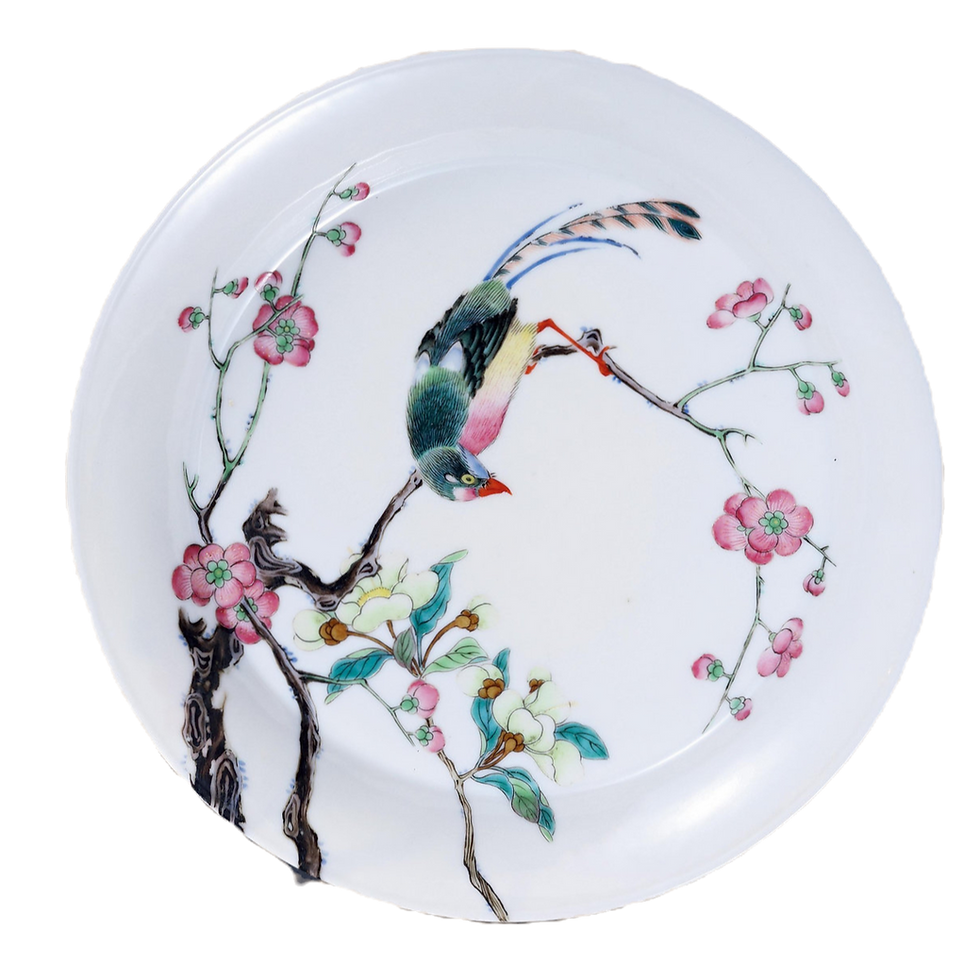The Psychology of Collecting: Why We're Drawn to Art and Antiques
- Philippe Smolarski
- Jan 11, 2025
- 4 min read
Updated: Jan 12, 2025
Inside us all, there's a deep-seated urge to collect. Whether it's children picking up seashells on the shore or sophisticated art enthusiasts bidding millions at Christie's, the need to acquire and showcase objects has fascinated humans across cultures and generations. But what really drives this intriguing behavior, especially when it comes to art and antiques?
The Evolutionary and Psychological Foundations
Our instinct to collect might be rooted in our evolutionary history. Dr. Steven Pinker, a well-known evolutionary psychologist, suggests that "the human mind evolved to be attracted to rare, hard-to-get objects because they served as reliable indicators of status and resourcefulness." In ancient times, gathering valuable resources was essential for survival. Today, this same impulse manifests in our love for rare paintings or unique antiques.
At its essence, collecting often stems from our deepest fears and desires, including the fear of mortality. By building a collection, individuals create something enduring, giving them a sense of immortality. This need to be remembered and to make an impact is a strong motivator for many collectors.
The Power of Personal Identity and Self-Expression
The items we collect often become reflections of who we are. As psychologist Carl Jung once noted, "The collection is the collector." Our belongings can become extensions of who we are, reinforcing our sense of identity and existence. Take Claudine, for example, a collector of Art Nouveau furniture who discovered her love for it after inheriting her grandmother's vanity table. Her collection is not just a connection to her family history but also a way to express her admiration for the unique designs and craftsmanship of that era.
The Quest for Meaning, Order, and Control
In a world that can feel chaotic and uncertain, collecting offers a way to create some semblance of order and control. Renowned psychiatrist Werner Muensterberger, in his important work "Collecting: An Unruly Passion," pointed out that collecting helps people impose order on chaos. By carefully organizing their items, collectors can achieve a sense of control and mastery over their surroundings. This psychological advantage can be especially valuable during uncertain or stressful times.
The Thrill of the Hunt and Neurological Rewards
The excitement of finding that rare piece explains why collecting can become so addictive. According to Dr. Rebecca Schindler, a neuroscientist, "The anticipation and the eventual acquisition of a desired object triggers the same reward pathways in the brain as other pleasurable experiences." This dopamine rush produces a pleasurable sensation that can be addictive, pushing collectors to keep searching for the next great find.
Social Connection, Status, and Cultural Capital
Collecting art and antiques often opens up opportunities for social interaction. Collectors bond over shared passions, attend auctions together, and join collectors' clubs. Research by Dr. Robert Cialdini highlights that collecting can be a strong indicator of cultural capital and social status. French sociologist Pierre Bourdieu further elaborates in his book "Distinction: A Social Critique of the Judgment of Taste" that taste is shaped not just by personal preference but also by social class and cultural capital.
The Investment Aspect and Financial Considerations
While the psychological benefits of collecting are important, we can't overlook the financial side. Dr. James Montier, a behavioral economist, points out that "collecting combines the emotional gratification of ownership with the potential for profit, creating a particularly compelling motivation."
Case Studies and Historical Examples
Throughout history, there have been many prominent collectors who exemplify different motivations:
Lorenzo de' Medici, famous for his diverse collection of classical artifacts, collected out of love for learning and a desire to elevate Florence's cultural prominence.
Sir John Soane turned his London home into a remarkable museum of antiquities, driven by professional curiosity and a desire to create a lasting educational resource.
Sigmund Freud maintained a passionate collection of antiquities, especially Greek, Roman, and Egyptian artifacts, believing they sparked creativity and offered insight into the unconscious.
Jackie Kennedy had a deep passion for antiques and historical objects, reflecting her respect for culture and history through her beautifully curated collections.
The Dark Side and Finding Balance
Experts caution that collecting can sometimes lead to issues. Dr. Randy Frost, an authority on hoarding disorder, stresses the need for perspective: "Healthy collecting enriches life without dominating it. If collecting starts to interfere with daily life or puts us in financial trouble, it's time to rethink our behavior."
To collect healthily, Dr. Elizabeth Murphy, a clinical psychologist who focuses on behavioral addictions, suggests asking ourselves:
Does this collection bring genuine joy?
Does it enhance other areas of life?
Are we collecting within financial limits?
Does the collection have a meaningful role in our life?
Collecting in the Digital Age
The rise of the internet and digital platforms has transformed the collecting landscape. Online marketplaces, virtual auctions, and social media have made art and antiques more accessible than ever before. Yet, the psychological reasons driving collectors remain unchanged. Whether it's an NFT or a 19th-century painting, collectors continue to seek connection, meaning, and identity through their pursuits.
Conclusion
As psychologist Mihaly Csikszentmihalyi wisely observed, "Objects help create order in consciousness by providing focal points of attention... Collections, in this light, are more than just possessions – they are tools for psychological growth and development."
Whether we're attracted to Renaissance artworks or Mid-century modern furnishings, our collections showcase not only what we own but also who we are and who we aim to become. By understanding the psychology behind collecting, we gain valuable insight into this captivating aspect of human behavior and can better appreciate its role in preserving history, fostering personal growth, and connecting us to our collective cultural heritage.




Comments